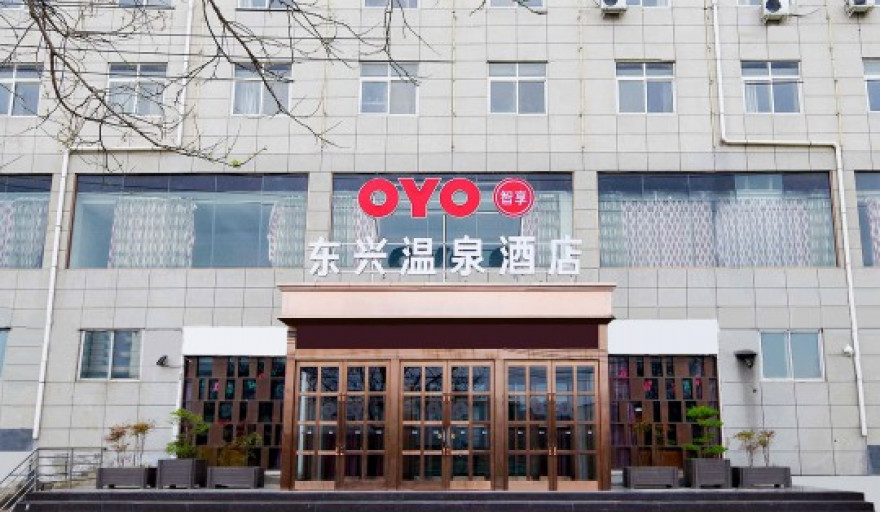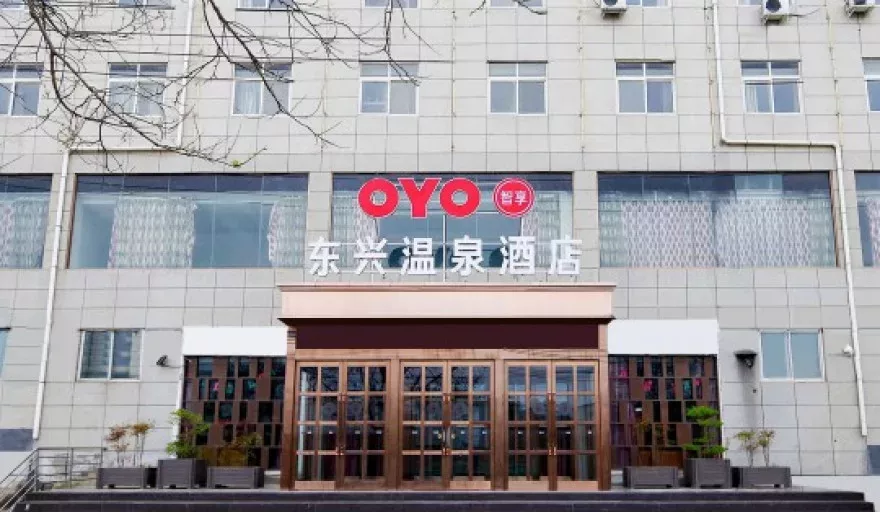
“I first identified the opportunity in the budget hospitality segment whilst working at Accor, as Chairman and COO for Greater China.
“At that point, I hadn’t found a good solution to the problem, but when I met founder Ritesh Agarwal, he presented a great business model and inspired me with OYO’s mission and vision. I believe in it – and I believe I have a lot to offer in making OYO Jiudian (Hotels) successful.
“My time at Pepsi gave me the experience of managing 25,000 employees with $2.5 billion in revenue. There, I built a strong brand and a profitable business with a good distribution network and an outstanding team. We also won the cola war.
“Now I want to be part of OYO’s story in China, with the aim of becoming the number one hotel company.”
Sam Shih knows all too well the mammoth potential of China’s hotel industry.
Indeed, the battlefield on which local and international players are vying for supremacy in the country’s hospitality market is a massive one.
According to the latest figures from IBISWorld, Chinese hotels are expected to generate $74 billion in revenue this year alone, the industry employing 2,682,500 people across more than 21,000 businesses.
Having won the cola war with Pepsi, Shih, as COO of OYO Hotels’ China division, is making strong advances in his latest campaign.
June 2019 saw the hotel brand become the largest in the country, a footprint which equates to 500,000 rooms spread over 10,000 hotels in 337 cities.
Such an operation is managed by a team of more than 10,000 full-time employees, while another 200,000 seasonal jobs have been generated in just over 18 months, helping to meet demand which averages out at 300,000 guests per night across the network.
“There is no speck of doubt that China offers vast potential,” explains Shih. “The existing supply of independent hotels represents an estimated 160 million rooms globally. Here, the supply is over 40 million and around 95 percent of those are within the addressable market for OYO Jiudian (Hotels).
“There is a large blue ocean market beneath the iceberg, which is undoubtedly exciting for us. These small independent hotels with fewer than 80 rooms are scattered around lower-tier cities in China. They are not branded, they lack experience in operations and display low-profit margins. Those are the major long-standing pain points for owners but represent an opportunity for OYO to add value.”
Mastering the mid-market
This is where the company’s unique business model comes to the fore.
It revolves around first-tier cities whilst planting roots in second-, third- and lower-tier markets, targeting the increasing band of middle-income earners who want to experience affordable quality on their travels.
The biggest differentiating factor is OYO’s full-stack model which starts with supply acquisition, renovation, hospitality and operations, and technology, ending with omnichannel distribution both on and offline.
“OYO’s mission is to upgrade all forms of real estate and provide quality living spaces to travellers around the world,” Shih adds.
“We are committed to offering standardised high quality hotels at affordable prices in convenient locations within China, targeting the core needs of business and leisure travellers, both domestic and international.
“Within China, OYO is working hard to address the Chinese traveller’s desire for consumption upgrade – to recognise that they are pursuing unique experiences above and beyond just a room to sleep in.
“We want to ensure that the middle-income population of China – around 400 million people – have access to high quality and affordable accommodation, and for the first time we’re offering that for less than RMB 150 ($22).”
Focusing on smaller cities has been another strategic win for OYO.
By investing resources into these local markets which have gone unnoticed by traditional hotel chains, the company has been able to not only revitalise tourism trades and address reputational issues such as security and hygiene, but also gain a march on the competition.
Further, independent, non-branded small and medium hotels account for a huge 95 percent of supply in China, compared with 80 percent in the USA and 60 percent in Europe, providing a measure of just how great an opportunity remains for OYO in the domestic market.
Eyes on the world
For Shih and OYO, however, ambitions stretch far beyond Chinese borders.
“OYO has become a global hotel brand,” Shih says. “It is the sixth largest hotel chain in the world with a broad footprint from Tokyo, Japan to Texas, USA – it is also the fastest-growing hotel, homes and living spaces chain in the world.
“Our brand recognition is not limited to India and China, but is also evident in Japan, the United States and Europe. All of this puts OYO in a visible position whilst making it deeply rooted in people’s hearts.”
Including its Chinese market, OYO has more than 23,000 hotels (700,000 rooms) and 46,000 vacation homes on its books, a footprint spanning 800 cities in more than 80 countries.
But being the world’s largest hotel brand is not OYO’s ultimate goal.
Shih concludes: “We want to be the most loved hotel chain – for consumers by providing quality living spaces and for hotel owners by providing revenue assurance and sharing the benefits of the consumption upgrade trend.
“We have just officially released ‘OYO Hotels 2.0’ to explore the development path of scale and refinement and bundle the revenue of OYO with the revenue of hotel owners. The two become a real community of common interests and embrace win-win cooperation.”


















